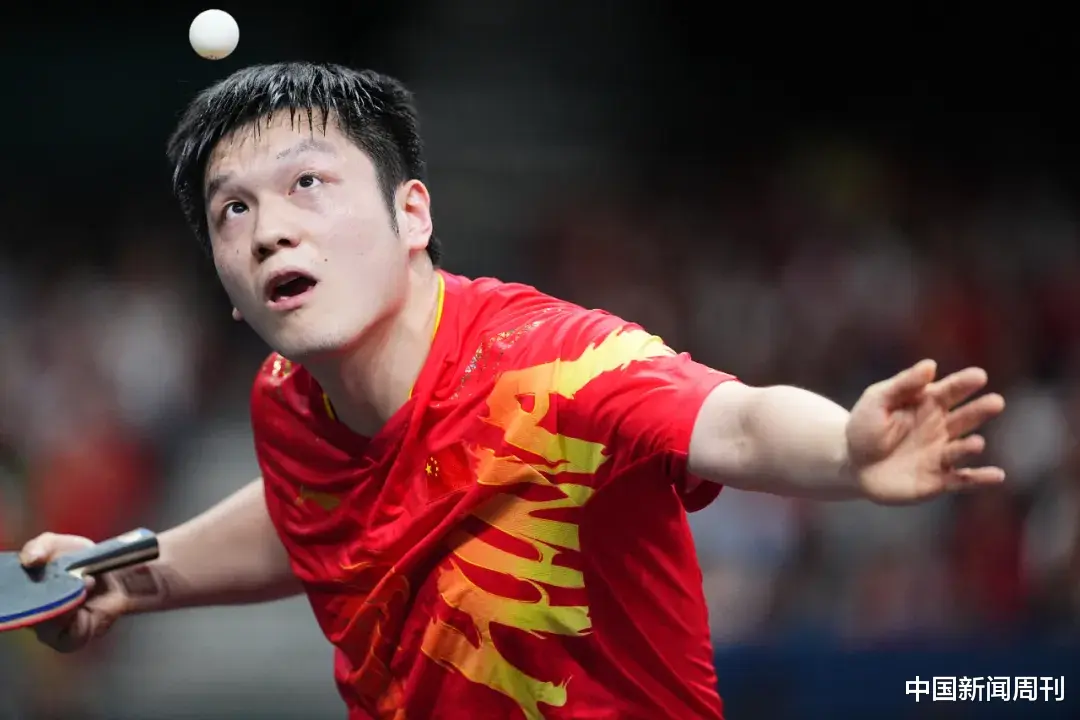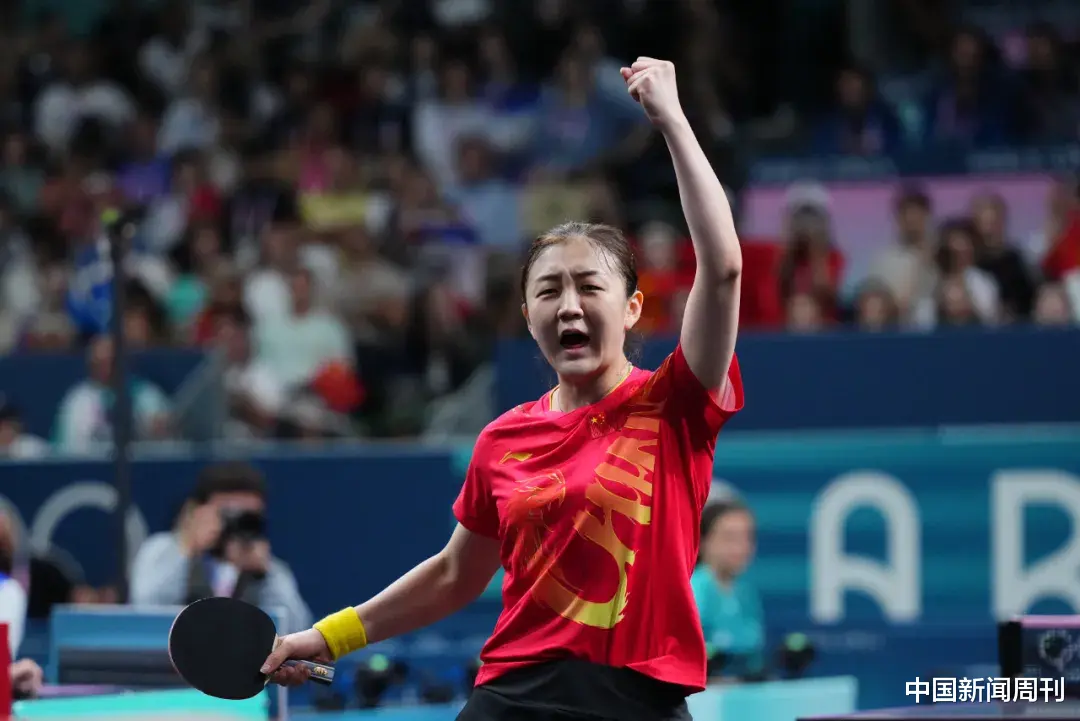Recently, Olympic table tennis champion Fan Zhendong has come into conflict with the World Table Tennis (WTT) organization.
On December 27th, both Fan Zhendong and fellow Olympic champion Chen Meng announced that due to the new "withdrawal fine" regulations introduced by the WTT, they had no choice but to apply for withdrawal from the world rankings. Both athletes posted their applications for withdrawal from the world rankings, which were submitted on December 23rd, on social media.
On December 28th, the WTT responded to the regulations mentioned by the two athletes with six points, stating that the rules they referred to were not newly introduced.
The very next day after the WTT's response, Fan Zhendong once again expressed on social media that he had never been officially informed of the fines for withdrawing from a match before, and that he signed and submitted his application for withdrawal on the day he received notice from the WTT.
What exactly is the WTT organization, and why are Chen Meng and Fan Zhendong withdrawing from competitions?
Inadequate Prize Money Attraction
WTT is an acronym in English, standing for World Table Tennis, which translates to World Professional Table Tennis League in Chinese, also known as the World Table Tennis Federation. It is a professional tournament organization established by the International Table Tennis Federation (ITTF).
Publicly available information indicates that the WTT, founded in August 2019, aims to take athletes and fans at its core, helping to comprehensively upgrade and transform the ITTF's competition system and commercial system, fully tapping the potential of table tennis, and further promoting the sport's influence worldwide.
In fact, since its inception, the WTT has clearly targeted the commercialization and internationalization of table tennis. In the context of globalization, sports events, as a special cultural product, have become an important driving force for the development of sports through the development of their commercial value.

Currently, WTT events are divided into several categories: WTT regular challenge matches, WTT star challenge matches, WTT championship matches, WTT Grand Slam matches, and WTT World Cup finals.
A domestic event operations organizer told China News Weekly that, within the commercial logic of professional sports marketization, continuous participation of top athletes is crucial for maintaining the appeal and attractiveness of events. Tennis, golf, boxing, and other competitions see organizers significantly increase prize money to continuously attract top athletes, fostering positive development of the events.
At the same time, events benefit from the participation of top athletes, with significantly increased box office attendance rates, ultimately forming a model with substantial commercial returns from ticket sales, advertising sponsorships, television and network broadcasting rights, etc.
However, since the WTT is not a physical enterprise, it relies on sponsors for funding. Compared to other sports, table tennis lacks the same level of market appeal. Excluding short-term sponsors for individual stations, there are only four long-term sponsors throughout the entire year of WTT events. This results in the WTT being unable to offer attractive enough prize money to lure top athletes.
This creates a contradiction: top athletes do not need this prize money, but they must participate to improve their world ranking points, which can secure better seeding positions in the Olympics and World Championships. However, when top athletes travel between various venues, causing increased fatigue and frequent injuries, or even affecting their participation in other commercial activities and preparation for major events, they may choose to skip competitions.
In the view of some industry insiders, the core reason for Chen Meng and Fan Zhendong's withdrawal lies here. "Most professional athletes in the later stages of their careers will consider extending their careers for a few more years. They will therefore be more concerned about their physical condition. When the allure of prize money is insufficient and accumulated fatigue occurs, athletes naturally choose to withdraw from competitions," a professional tennis player told China News Weekly.
Five Years Since Its Founding, Criticisms Have Come From All Sides
Publicly available information shows that, to achieve commercial goals, the WTT hired professionals to carry out commercial reforms.
Due to the high degree of commercialization in football and tennis, the WTT not only recruited elites involved in event management and marketing from the ATP World Tour and WTA International Series in tennis but also brought in the Chief Business Officer of FIFA and the Commercial Director of UEFA to provide commercial strategic advice to the company's leadership.

However, after the founding of the WTT, due to unforeseeable circumstances, commercial matches did not proceed as expected in the initial years, making the goals the WTT wanted to achieve seem somewhat unattainable.
In the 2022 annual report, the WTT openly stated that the overall income of the International Table Tennis Federation that year was $26.4 million, pointing out that this figure was "below expectations due to the impact of the global pandemic."
After 2022, the WTT stepped up its efforts, with more matches and increasingly dense schedules. Before the end of 2024, the WTT World Table Tennis Federation had already announced the 2025 competition plan, indicating that the commercialization and marketization of table tennis were gradually taking shape. However, in reality, during the years the WTT has been holding events, criticisms have never ceased.
In April of this year, Nigerian table tennis player Quadri Aruna publicly criticized the WTT and the International Table Tennis Federation for unreasonable penalties against him and delays in prize money payments after the WTT Incheon Championship.
In September of this year, before the WTT Beijing Grand Slam, Olympic silver medalist and Swedish star Mattias Falck stated that participating in WTT competitions was a "losing proposition."
Falck gave an example that in order to improve their points, athletes participate in WTT competitions, but they must cover their own expenses for round-trip airfare, accommodation, meals, training, and recovery, often costing 30,000 to 50,000 RMB per week. For some ordinary athletes, if they do not receive prize money, they are almost in a state of "spending more than they earn."
Such situations are uncommon in other sports. Taking tennis as an example, most athletes will not incur a situation of "spending money to play" even if they experience a "first-round exit."
Moreover, table tennis athletes from various countries continue to criticize WTT-organized events through social media, including concerns about event logistics support, lack of buses to the venue, and players only being able to stay in expensive hotels that have partnered with the event.
In addition to athlete criticisms, fans have also raised questions about the increasingly absurd ticket prices. In August of this year, the final tickets for mixed doubles, men's and women's doubles, and singles at the China Grand Slam ranged from 888 to 1688 yuan, with no seat selection available. Event operation staff told the media, "The ticket price is set by the WTT, and as a top-level event, the Grand Slam will have higher prices."

Some fans who bought tickets to watch the China Grand Slam matches stated that the ticket prices set by the WTT were close to those of the China Open. However, table tennis does not have enough influence, and the large number of player withdrawals reduced the event's appeal, making it impossible to reach the level of the China Open.
Can They Still Compete in the Olympics After Withdrawing?
According to WTT requirements, athletes can only skip WTT events without accepting fines under three circumstances: official maternity leave certified by the WTT, submitting a report to retire from international competition, or obtaining an official medical certificate certified by the WTT. Fan and Chen chose the second option.
At the same time, the WTT stipulates that after withdrawing, players are not allowed to participate in any table tennis events, club matches, or exhibition matches held in the same week of the withdrawn, cancelled, or forfeited event. If players do not comply, they will be fined, with higher world rankings resulting in higher fines.
Chen Meng currently ranks fourth in the world, while Fan Zhendong ranks sixth. For each missed WTT event, they will be fined 5,000,andiftheymissmorethanthreetimes,theywillneedtopayanadditionalfineof250 to 500.Iftheyparticipateinanothercompetitionduringthewithdrawalperiod,theywillbefinedanadditional5,000. Calculated based on an average of one competition per month, Fan Zhendong and Chen Meng would have to pay at least $61,000 in fines to the WTT.
Furthermore, according to relevant regulations, if athletes do not participate in WTT-related events, they will also be penalized in terms of world ranking points, which is known as the "zero assignment" situation within the industry.
Currently, the ITTF's world ranking is determined by adding the highest eight scores obtained from all events participated in over 52 weeks, with the points valid for one year.
If "zero assignment" occurs once, points can only be added from seven effective scores; when "zero assignment" occurs twice, it reduces to adding from six effective scores. After the Paris Olympics, Fan Zhendong, Chen Meng, and Ma Long were frequently "zero assigned" due to withdrawing from various events. Among the recent eight WTT events, Fan Zhendong and Chen Meng had five "zero assignments."
After Fan Zhendong and Chen Meng withdraw from the world rankings, they will officially be removed from the next issue of the world rankings. Even if they participate in competitions again in the future, their points will not be restored.
The greater impact will be the inability to participate in international events. Not only WTT competitions, but also events organized by the ITTF, such as the Olympics, World Championships, and World Cups, will be affected. However, they can still participate in other domestic events,